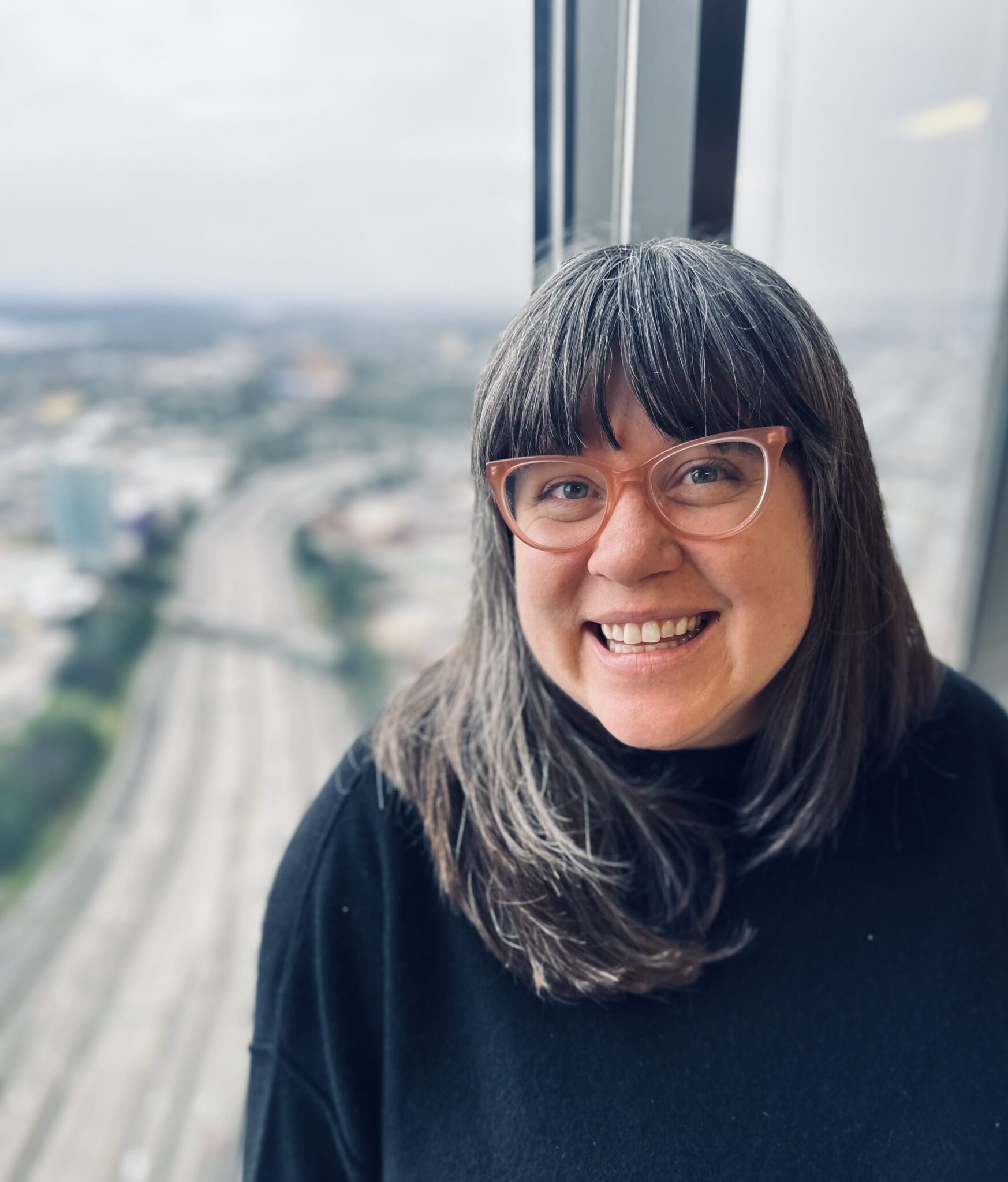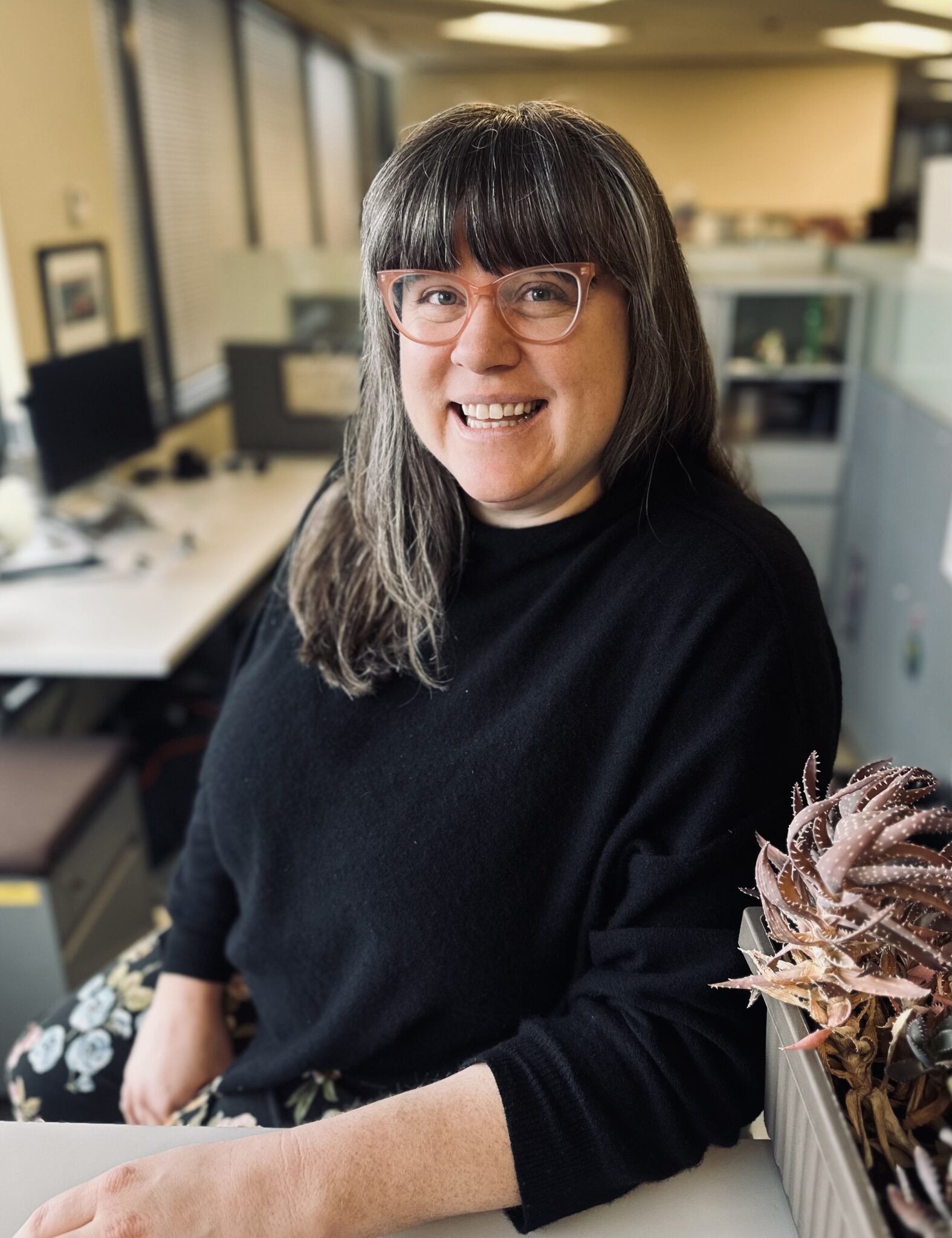
Kaylee DiMaggio is a Victim Support Team Supervisor in the Seattle Human Services Department’s Safe and Thriving Communities (STC) division. She has worked at Seattle Human Services for three years.
What is your role at Seattle Human Services?
I run the Victim Support Team (VST) within the Safe and Thriving Communities Division. VST has operated an amazing volunteer program since 1996, with over 60 community members. I recruit, onboard, coordinate training, and manage all volunteer programs. I also get to supervise two fantastic full-time Victim Services Specialists. Both VST staff and community volunteers provide emergency advocacy to survivors of domestic violence, sexual assault, and human trafficking. VST offers life-saving client assistance, urgent resources, and connects survivors to long term support.
What made you want to work in human services?
Out of college I knew I wanted to address gender-based violence and its impact on society. The Victim Support Team was my first professional job, and I’ve loved serving the community for the past 14 years as a part of the City’s response to this violence.
How has your job changed in recent years?
My job has evolved and grown tremendously in the past few years. COVID transformed our operations and now I manage multiple online platforms for case management, community training, and resources. Services have expanded to include additional crime types beyond domestic violence, and my role now includes distributing emergency client assistance.
What do you love about your job?
I love so many things about this job—which is why I’ve spent my whole career here! More specifically, I think the VST community volunteers are super special. They undergo intensive onboarding (all during their own free time) to become safe and caring supports to people going through unimaginable trauma. I am honored and feel grateful for the opportunity to build relationships with each new batch of VSTs and watch them grow.
I also enjoy working alongside our Crime Survivor Services staff. Working within our collaborative team sustains my capacity and passion for this field. Despite the heavy nature of our work, we also have a lot of fun. 😊
How do you contribute to HSD’s overarching goals related to racial equity?
I recognize that violence in individual relationships is often derived from and perpetuated by institutional oppression. I know there are systemic barriers to accessing justice, services and resources for Black, Indigenous, and other people of color communities. As a part of the government response to violence in Seattle, the Victim Support Team offers services in a unique timeline immediately following a traumatic experience, with an important opportunity to reduce those barriers in the aftermath of violence.
As a white woman in leadership role, I am continuously auditing myself and our programs to recognize and divest from internalized white supremacy. I strive to cultivate services that center the intersectional identities of our clients and foster a team culture that uplifts the value of racial equity.
What motivates you or keeps you going?
I feel a deep sense of purpose in supporting the direct service providers in our local response to violence. To work alongside a team of dedicated staff and community volunteers is incredibly rewarding. I think volunteerism is an important part of life (and I know it’s a privilege to have the time and ability to devote time for free). It motivates me to continue to offer this outlet to be involved in something meaningful. Even when volunteers don’t stick with the program for long, I hope the education they’ve received will have ripple effects towards our society becoming less accepting of individual and institutional harm.
What’s one piece of advice for HSD newcomers or recent graduates in your field?
I know it’s hard to get your foot in the door when embarking on a new career path but stick with it. I’m partial to volunteering as a way to gain great experience and have seen lots of great careers launch out of those roles. Good luck!

